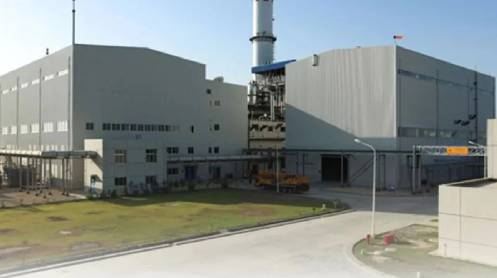KARACHI: The government is finalising a proposal to address the concerns of four oil refineries that have not signed upgradation agreements with the energy regulator, sources told The News on Monday.
The refineries have raised issues over taxation, arbitration, force majeure and import incentives, which they say are not in line with the Brownfield Refinery Policy announced in August, the sources said. “A summary is being finalised for the consideration of the Cabinet Committee on Energy (CCoE) to address the concerns of the refineries,” a source said.
Only one refinery, Pakistan Refinery Limited (PRL), has signed the agreement so far, while the other four refinaries refused to sign the upgradation agreements with the Oil and Gas Regulatory Authority (OGRA) under the Brownfield Refinery Policy aimed at upgrading refineries to produce cleaner fuels.
The policy, which was notified on Aug. 17, 2023, offered incentives and concessions to the existing refineries to invest in upgrading their facilities to produce Euro-V compliant fuels, which have lower sulfur content and are less harmful to the environment.
The policy required the refineries to sign an upgrade agreement with OGRA within three months, outlining their commitments, project milestones and details. Sources said that the government has decided to address the concerns of four refineries as the Petroleum Division has been working on it because if the four refineries do not sign the agreements, the whole purpose of the new policy would be defeated.
Sources said that four refineries have concerns about force majeure, arbitration, taxation and incentives on imports, which were not considered by the government in the agreements drafted for the refineries.
The News reported last week that the main issues were the taxation on the funds in an escrow account of the refinery and the definition of the arbitration and force majeure clauses, which were not part of the policy and were not financially feasible for the refineries.
“We are determined not to sign the agreement until the pending issues are resolved,” the official said. He accused OGRA of distorting the policy by adding clauses to the agreement that were not part of the policy or that defeated the purpose of the policy.
“Upgrading refineries requires a huge investment of $5 billion, and who would subscribe to the clauses in the agreements that are not financially viable and could push the refineries to the wall in the future?” the refinery official asked.
Sources said that incentives on the import stage are of critical importance, especially in relation to import parity, which would not attract investment if not addressed. Sources said that this issue is so important that PARCO, one of the four refineries that did not sign the agreement, told the authorities that it would not enter into an agreement without resolving this issue.





